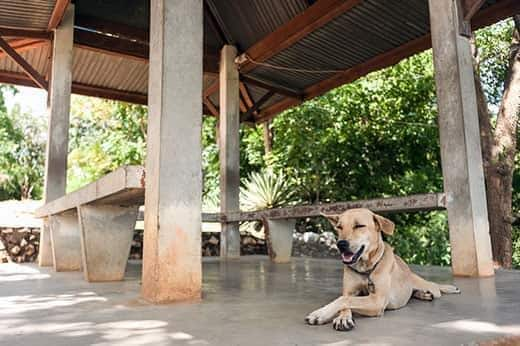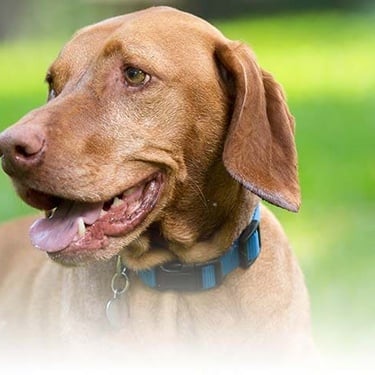
-
Find the right food for your petTake this quiz to see which food may be the best for your furry friend.Find the right food for your petTake this quiz to see which food may be the best for your furry friend.Health CategoryFeatured products
 Adult 7+ Small Bites Chicken Meal, Barley & Rice Recipe Dog Food
Adult 7+ Small Bites Chicken Meal, Barley & Rice Recipe Dog FoodSupports energy level and beautiful coat in mature dogs who prefer smaller kibble
Shop Now Adult Small Bites Chicken & Barley Recipe Dog Food
Adult Small Bites Chicken & Barley Recipe Dog FoodSupports lean muscle for dogs who prefer smaller kibble
Shop Now Adult Oral Care Small & Mini Chicken, Rice & Barley Recipe Dog Food
Adult Oral Care Small & Mini Chicken, Rice & Barley Recipe Dog FoodClinically proven kibble technology to reduce plaque & tartar build-up, specially designed for small & mini dogs
Shop NowFeatured products Adult 7+ Tender Tuna Dinner Cat Food
Adult 7+ Tender Tuna Dinner Cat FoodWith delicious chunks in a decadent gravy
Shop Now Sensitive Stomach & Skin Chicken & Beef Dinner
Sensitive Stomach & Skin Chicken & Beef DinnerGourmet daily nutrition, carefully made. Tasty chunks with chicken & beef in a decadent gravy. Supports digestive health, nourishes skin and promotes a lustrous fur.
Shop Now Adult Chicken & Spinach Casserole Cat Food
Adult Chicken & Spinach Casserole Cat FoodWith delicious chunks in a decadent gravy
Shop Now -
DogCat
- Cat Tips & Articles
-
Health Category
- Weight
- Skin & Food Sensitivities
- Urinary
- Digestive
- Kidney
- Dental
- Serious Illness
-
Life Stage
- Kitten Nutrition
- Adult Nutrition
Featured articles Water
WaterWater is the most important nutrient of all and essential for life. Animals can lose almost all their fat and half their protein and still survive, but if they lose 15% of their water, it will mean death.
Read More Pet Food Storage Tips
Pet Food Storage TipsWhere you store your cat and dog food can make a big difference in the quality and freshness once it is opened. Here are some common questions and recommendations for optimal storage for all of Hill’s dry and canned cat and dog food.
Read MoreHill's Australian Bushfire EffortsRead More -


Have you ever asked yourself do dogs sweat? Or even wondered, can dogs sweat? You might've heard that dogs cool off by panting, but you are not sure if that means they sweat. Read on to get the facts about dog sweat and its key role in keeping dogs cool.
Do Dogs Sweat Like Humans?

Dogs sweat, but they sweat a little bit differently than humans do.
Dogs have two types of sweat glands: merocrine glands, which are similar to human sweat glands, and apocrine glands. Merocrine glands are located in dogs' paw pads, and so when we think about how do dogs sweat, actually, dogs sweat through their paws. Sweating through their paws helps dogs to cool down. Apocrine glands in dogs are located throughout their entire body and they also make dogs sweat — but this type of sweat doesn't cool your pup down. Instead, these produce a scent, like body odour according to Brandon Park Veterinary Hospital which contain scent pheromones that help dogs to identify each other.
How Else Do Dogs Stay Cool?
People commonly ask why do humans sweat and dogs pant? Well, while sweating through their paws helps your dog cool down a little, the primary way they lower their body temperature is through panting.
Here's how it works: when a dog pants, it increases the airflow across the moist surface of the tongue and inner lining of the lungs which causes evaporation and heat transfer, which cools them down says Brandon Park Veterinary Hospital. This is similar to the way evaporating sweat on the human body helps humans cool down.
There's one more way dogs are able to regulate their body temperatures, called vasodilation. During this process, a dog's blood vessels expand, bringing hot blood closer to the skin's surface and letting it cool down. This cooler blood then flows back to the heart, bringing the dog's overall temperature down.


Tasty Tips
Can Dogs Sweat Too Much?
People who are prone to excessive sweating when they're in a cool environment and experience sweating even in air conditioning, have an ailment called hyperhidrosis. It's unclear if dogs experience the same thing. However, it is important to remember that excessive sweating can be a sign of stress in your dog says Bonnies.
While no one's certain why this happens, it's believed that the excess moisture provides better traction on some surfaces, helping dogs run away from the source of their stress. This stress-induced sweating generally clears up once the stressful situation passes which provides some explanation around how do dogs sweat.
Whilst dog sweat is normal, if you do notice your dog's paw pads producing a lot of moisture, ask your veterinarian about possible causes and ways to help your sweaty pup stress less.
Recognizing an Overheated Dog

While dogs have mechanisms to cool themselves down, they aren't always the most effective, making them prone to overheating in hot weather. Heat exhaustion in dogs can quickly escalate to a life-threatening heat stroke if it isn't dealt with immediately.
Greencross Vets says that heat stress can be fatal and to watch out for the following signs of your dog overheating:
- Excessive panting
- Bright red gums
- Salivation
- Vomiting
- Anxious pacing, uncoordinated, stumbling
- Seizures or strange behaviour
- Collapse, coma
If your dog shows any of the above signs, immediately move them into an air-conditioned space or to a shaded area and offer them water to drink. To prevent your dog from getting overheated in the first place, limit their physical activity in hot weather, keep them in the shade and provide them with plenty of water. It's also crucial to never leave your dog trapped in a hot environment, such as a parked car. Being a loving and responsible pet parent includes keeping your cool pooch from becoming a hot dog.


Jean Marie Bauhaus is a pet parent, pet blogger, and novelist from Tulsa, Oklahoma, where she usually writes under the supervision of a lapful of fur babies.
Related products

Supports energy level and beautiful coat in mature dogs who prefer smaller kibble

Clinically proven kibble technology to reduce plaque & tartar build-up, specially designed for small & mini dogs

Supports lean muscle for dogs who prefer smaller kibble

Supports healthy joints, lean muscle, and beautiful coat for large breed dogs
Related articles

Selecting the right food for your puppy is a key to quality nutrition and a long, healthy life., Learn more about how to select the right puppy food.

As small and toy breed dogs age, their nutritional needs change.

Extra pounds can cause problems for your dog's overall health. Learn the signs that your dog might be overweight, and what you can do to manage its weight.

Learn how today's wet dog food blends have gotten a face lift, and how you'll provide your dog the nutrition he needs in the form he loves.

Put your dog on a diet without them knowing
Our low calorie formula helps you control your dog's weight. It's packed with high-quality protein for building lean muscles, and made with purposeful ingredients for a flavorful, nutritious meal. Clinically proven antioxidants, Vitamin C+E, help promote a healthy immune system.
Put your dog on a diet without them knowing
Our low calorie formula helps you control your dog's weight. It's packed with high-quality protein for building lean muscles, and made with purposeful ingredients for a flavorful, nutritious meal. Clinically proven antioxidants, Vitamin C+E, help promote a healthy immune system.

